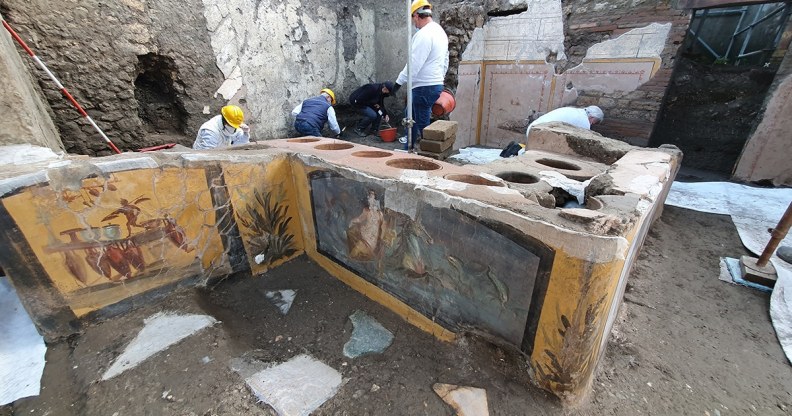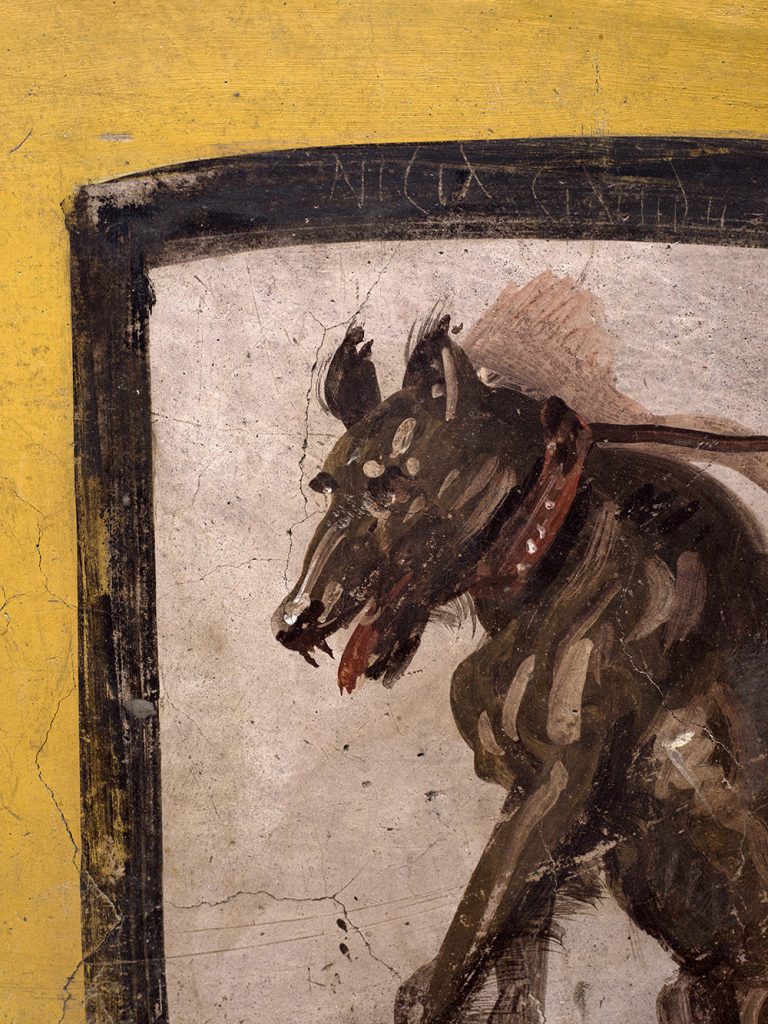Ancient Roman ‘homophobic graffiti’ found in unearthed Pompeii snack bar: ‘Nicia cinaede cacator’

Archaeologists discovered paintings, food residue, animal bones, skeletons of victims of the volcanic eruption and, surprisingly, some homophobic graffiti. (Pompeii Sites)
Archaeologists who have been excavating an Ancient Roman snack bar in Pompeii, Italy, have discovered “homophobic” graffiti scrawled on the walls.
According to a press release from Pompeii Sites, the colourful Thermopolium of Regio V was one of the snack bars at Pompeii, and it has finally been revealed in its entirety by archaeologists.
After years of work, they discovered paintings, food residue, animal bones, skeletons of victims of the volcanic eruption and, surprisingly, some homophobic graffiti.
On the last side of the snack bar’s counter to be excavated, above a painting of a dog, an ancient vandal has carved the words: “NICIA CINAEDE CACATOR.”

The “homophobic” graffiti was found scratched above a painting of a dog. (Pompeii Sites)
Nicias was likely to have been a freedman from Greece and the owner of the bar, while “cinaede cacator” translates as “catamite s**tter”.
The word “catamite” does not have a modern-day equivalent, but referred to a teenage boy who was the sexual partner of a young man. The context around these relationships is debated by historians, with some arguing the practice was equal to paedophilia, and others saying that the teenage boys were the same age that women would have been when they were married.
When directed at an older man, the word “catamite” was used as an insult.
Pompeii Sites notes that the homophobic graffiti “was probably left by a prankster who sought to poke fun at the owner, or by someone who worked in the Thermopolium”.
precisely, I think it refers to bottom homosexuals
— Franco Ligabue ? (@ilbue63) December 26, 2020
Ancient Roman men are known to have written love poetry about other men, and women wrote poetry about other women. Some reports even suggest there were same-sex marriage ceremonies, and there was even a gay Roman emperor.
Although a man being penetrated was stigmatised in Ancient Rome, it was the arrival of Christian rule that caused it to be punished by burning at the stake.
Daisy Dunn, the author of Catullus’ Bedspread: The Life of Rome’s Most Erotic Poet, previously told PinkNews: “Sexuality wasn’t categorised in the same way as it is now, so it is hard to put labels on what people identified as, but the history of gay sex, love and poetry is quite fascinating.”

